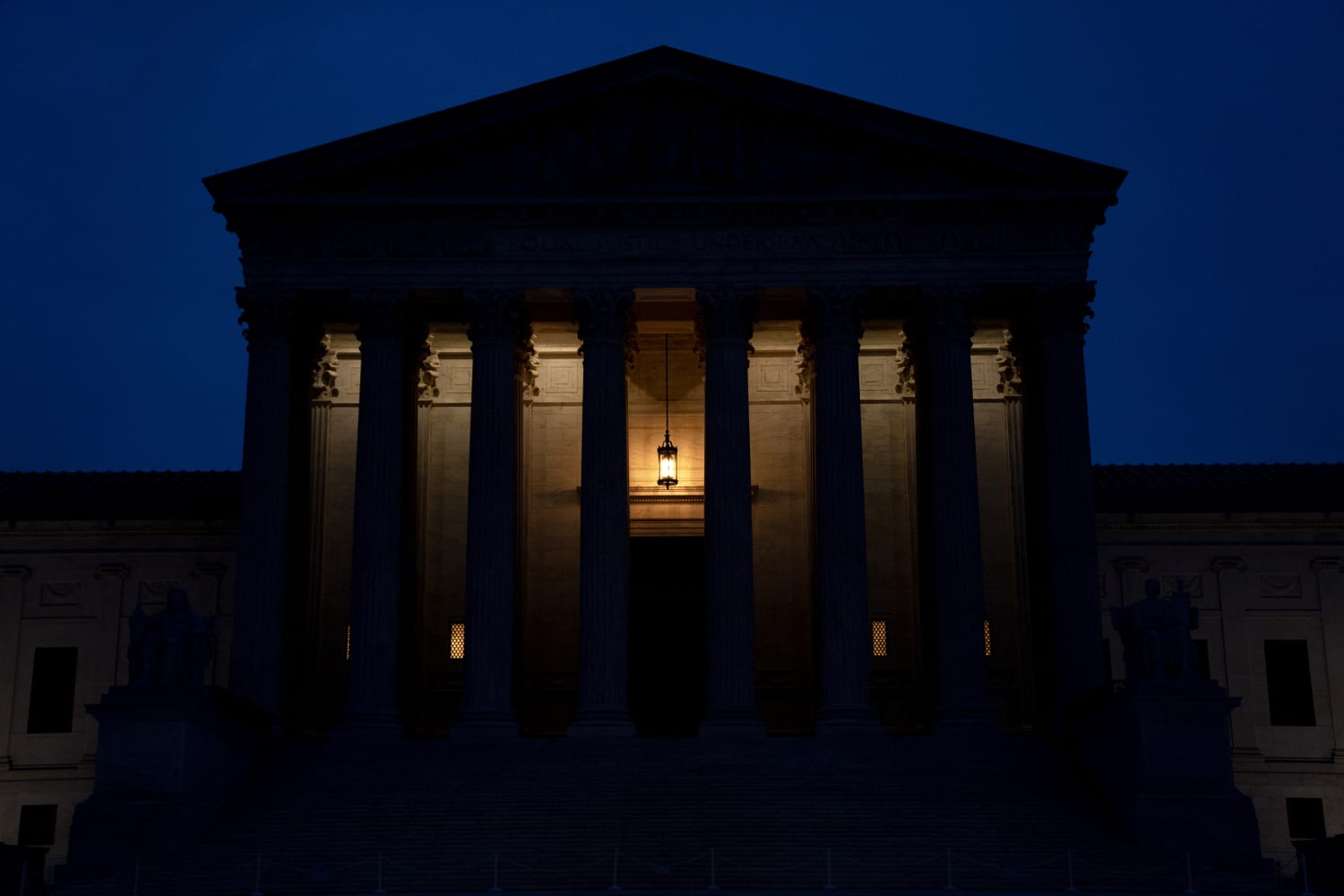On Wednesday morning, the Supreme Court heard oral arguments in Carson v. Makin, a case about Maine’s public education system. Although Maine will pay to send some Maine children to private schools whose education matches that of a Maine public school, Maine will not pay for religious education. Parents who want Maine to foot the bill for their children’s religious schooling claim this refusal violates their religious liberty and sued. They should lose.
A majority of the justices seem intent on continuing down their path of reading the establishment clause out of the Constitution and privileging religion over all other concerns.
Our democratic form of government depends on an educated citizenry. Consequently Maine, like most states, guarantees a public school education to all its children. In particular, the state wants to make available an education that teaches tolerance and exposes students to multiple viewpoints.
Roughly 5,000 students in Maine live in school districts too sparsely populated to support a public school. To ensure that these rural students also have access to a Maine education, Maine subsidizes their attendance at any private school that provides the equivalent of a secular Maine public school curriculum. Maine will not, however, subsidize attendance at private schools with a religious curriculum.
David and Amy Carson send their daughter to Bangor Christian School, whose mission includes “lead[ing] each unsaved student to trust Christ as his/her personal savior” and infusing each class with a Biblical worldview. The Carsons, who live in a district without a public school, argue that Maine’s refusal to subsidize their daughter’s religious schooling violates the free exercise clause of the First Amendment of the U.S. Constitution, which states that the government “shall make no law respecting an establishment of religion, or prohibiting the free exercise thereof.”
A religious right to government funds may seem a startling proposition. After all, though the government cannot stop people from exercising their constitutional rights (whether it be the right to an abortion or the right to attend a religious school), the government is generally not obligated to help pay for them to do so.
To support their claim that Maine is obligated in their case, the parents point to two recent Supreme Court cases — Trinity Lutheran Church v. Comer and Espinoza v. Montana Department of Revenue— where the government’s refusal to direct funds to religious schools was found to violate the free exercise clause. However, those cases share a crucial difference that precludes them from serving as controlling precedent for the parents’ contention.
In Trinity Lutheran, Missouri gave grants to improve children’s playgrounds. Although otherwise qualified, Missouri would not award a grant for Trinity Lutheran’s church school playground. The Supreme Court found Missouri guilty of unconstitutional discrimination under the free exercise clause because it withheld a grant from Trinity Lutheran solely due to its status as a religious organization rather than due to any religious use of the money — playgrounds are, according to the majority, a secular endeavor.
Espinoza presented a similar problem. In that case, the state of Montana planned to provide tax breaks to help students attend private schools but categorically excluded religious private schools. Again the Supreme Court concluded that a state was discriminating against religious schools based on their status as religious organizations.
Here, Maine is not discriminating against religious schools because of their religious status. On the contrary, any religious schools that offer an education equivalent to the one provided by Maine public schools — namely, a secular education teaching tolerance and multiple viewpoints — is eligible. Thus, unlike in Trinity Lutheran and in Espinoza, Maine is basing its decision on religious use, not religious status. That is, the decision is based on how taxpayer money will be used rather than on the identity of the recipient.
In fact, the real discrimination problem arises if Maine were forced to fund the currently ineligible religious schools, as many discriminate on the basis of sex, sexual orientation, gender identity and, of course, religion. The Carsons’ chosen institution, Bangor Christian School, teaches that God has ordained distinct roles for men and women and that men are to lead the church and the home. The school hires only born-again Christian teachers. Transgender and openly gay teachers and students are not welcome.
Taxpayers should not have to fund organizations that discriminate against them. Indeed, governments should generally not be in the business of funding any organization that discriminates.
Funding religious schools also raises establishment clause concerns. The establishment clause is the very first provision in the First Amendment and has long been interpreted to mandate a wall separating church and state. Although the current Supreme Court has been assiduously dismantling that wall, the establishment clause still prohibits in some cases, or at least discourages, the government from funding religious indoctrination and worship. Doing so may not only cause strife but also will inevitably favor religions large enough to have schools over those that aren’t.
Unfortunately, a majority of the justices seem intent on continuing down their path of reading the establishment clause out of the Constitution and privileging religion over all other concerns. Again and again the conservative justices Wednesday returned to the idea that paying for private secular schools but not private religious schools amounted to invidious discrimination against religion, as though Maine had no right to choose to support secular education only. Indeed, based on the comments of many justices during the hearing, it seems the Supreme Court may well eliminate the distinction between religious use and status.
Of course, we won’t know the outcome until the Supreme Court releases its ruling, which may not be for months. A win for the parents means many taxpayers will be forced to pay for religious indoctrination that is not only contrary to their own religious values but also denies their own equality.
Source: | This article originally belongs to Nbcnews.com











